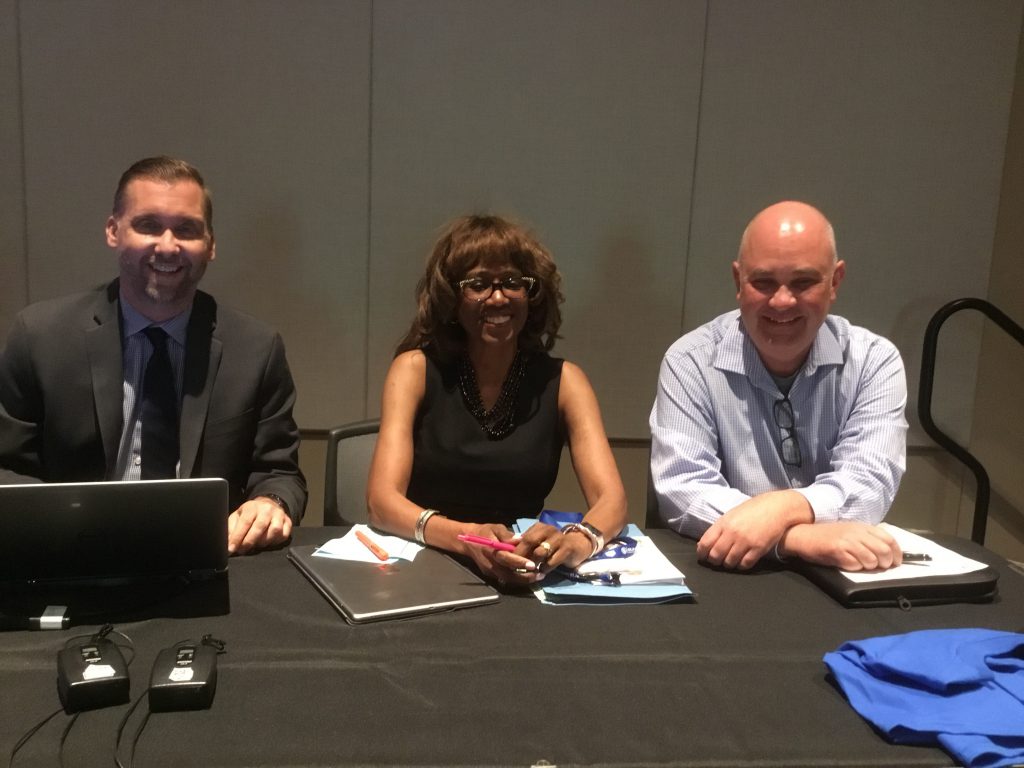Achieving Success in your Workers’ Compensation Program
At the 2017 PRIMA Annual Conference a panel discussed strategies to for addressing cost drivers in your workers’ compensation program. The panel was:
- Edward Canavan – VP Workers’ Compensation Practice and Compliance, Sedgwick
- Dawn Watkins – Director Integrated Disability Management, Los Angeles Unified School District
- Zachary Gifford – Associate Director Systemwide Risk Management, The California State University
Question: What are some of the complex issues you are facing in your workers’ compensation program?
Answers:
Provider fraud has been a huge issue in California with several providers being prosecuted in high-profile cases worth hundreds of millions of dollars. You have to balance the need to provide the best benefits possible with your injured workers with the awareness that fraud exists.
Opioid medications continue to be a challenge. It is important to make efforts to wean people off of opioids. Lives are at stake.
Question: What lessons can be learned from claims that had bad outcomes?
Answers:
Remember that the workers’ compensation system exists to provide benefits. When you look back at claims that went bad many times you find that there was an opportunity to resolve the claim and you did not do it. Usually there were unnecessary disputes that blew up and both sides dug in. We need to make smart business decisions even when that means paying things you may not want to pay for.
Resolving claims timely is the key. Do not hesitate to C&R when you have the opportunity. The longer claims stay open, the more the adjuster starts to be on auto-pilot making payments and the claims continue to grow. Some employers refuse to settle claims for existing employees for fear they will just file a new claim. They either leave the claim open for future medical, or require a resignation from the employee with the settlement. This approach can not only be disruptive to the workforce but will also lead to your claims to continue to develop over time.
Question: What tips do you have for working with your claims handlers?
Answers:
Lingering claims are a drag on your claims handling resources. Make sure your claims handlers have reasonable case loads and then push them to think strategically. Pay extra if you need to. Too often claims handlers focus only on the technical aspects of their job and not the practical aspect of getting the best care for workers and moving the file to resolution. If caseloads are reasonable you need to push for more than just a technical approach.
It is important to keep your claims handlers advised of things going on with your operations that could impact claims. If you are going through a reduction in workforce this could lead to the filing of more questionable claims. It is also important that your adjusters and attorneys are reasonable in their evaluation of things. Don’t push to deny something that you know will likely be awarded in the future.
Claim review meetings can be a good opportunity to get an update on challenging cases and discuss resolution strategies.
There is a balancing act of taking care of your employees while also controlling costs.
Look beyond the claims handlers and make sure you are tapping into your other resources. Keep a list of people you can reach out to on specific issues for their expertise. Carriers, attorneys, brokers, etc. People like to be helpful so tap into experts for assistance when you need it.
Question: What other tips do you have for managing your workers’ compensation program?
Answers:
Stay on top of pending legislation. Know what is being considered by the legislature and the potential impact it could have on your organization. Make strategic decisions around issues you want to lobby the legislature for or against. Public entity employers can be a powerful lobbying group when they can show that legislation could cost significant state money.
Never lose sight of employment practice issues. These are very intertwined with workers’ compensation claims. ADA/FMLA guidelines and “reasonable accommodation” rules apply to workers’ compensation claims.
Do not use the worker’s compensation claim as the opportunity to rid yourself of a problem employee that should have been addressed previously. In such cases try to keep the employment issues separate from the claim.
Pool data with other public entity employers and compare notes to identify potential provider fraud. Have a relationship with your local district attorney so that they will listen when you feel you have identified a fraud issue.
There is a difference between criminal fraud and abuse. Abuse is much more common, and fraud is very difficult to prove.
When you are suspicious, use surveillance. That way you know if they are working a second job, etc.
Take advantage of the valued added services that your carrier provides. They can really assist in mitigating your claims costs.
On complex claims, peer to peer communication works best. Programs like Best Doctors can facilitate this.
Make sure your client service instructions are clear with regard to your expectations.


